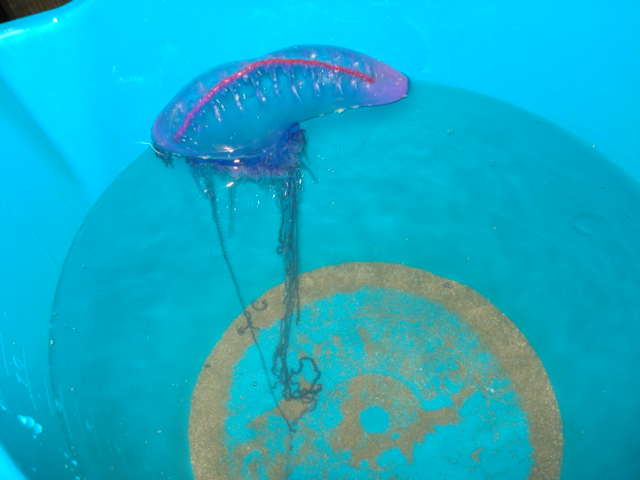Nutrition
Portuguese Men of War feed on a wide variety of soft bodied prey, including
fish, fish larvae, cephalopods, and eel larvae. They are prevented from
capturing hard bodied organisms due to the structure of their nematocysts.
Like wise,
larger
fish, such as flying fish and mackerel, usually manages
to escape the tentacles.
Once a prey item is caught, the tentacles contract and bring the prey
into contact with the multiple digestive polyps or gastrozooids located on the
underside of the pneumatophore. These bag-like stomachs, each complete with individual mouths,
digest the prey
via enzymes secreted to breakdown proteins, carbohydrates, and fats and
eventually liquify the organism.
Following digestion, any indigestible remains are expelled though the
mouths of the gastrozooids. The nourishment provided by the digested food is
then absorbed into the body and is eventually circulated to the different polyps
in the colony.
